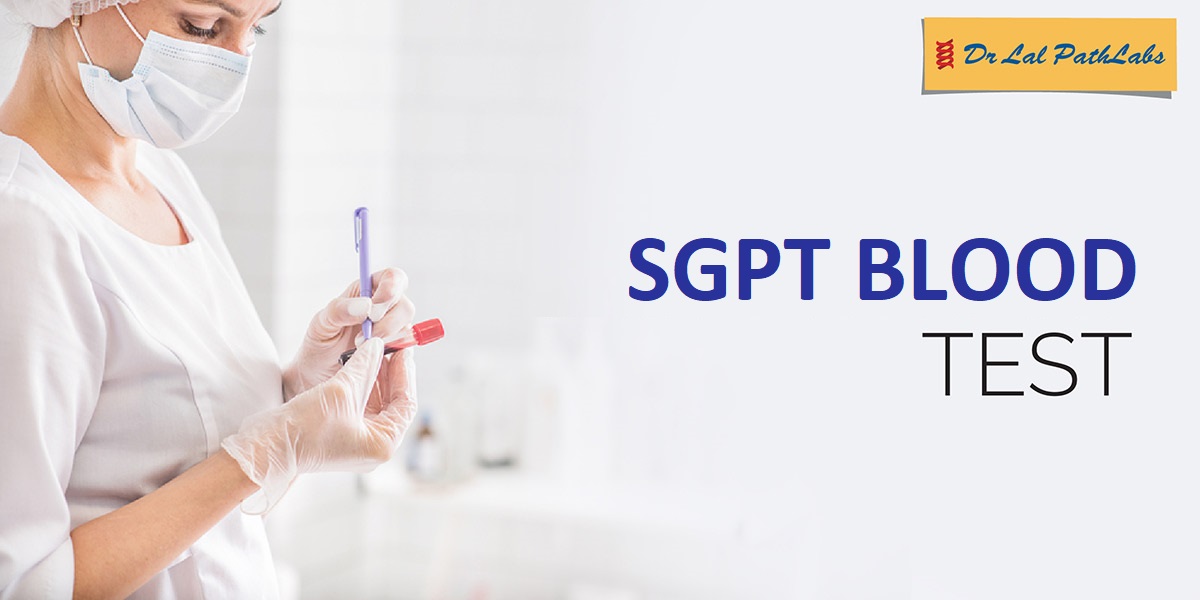SGPT Test: Everything You Need To Know
Overview
SGPT is an enzyme found mainly in liver tissue and to a lesser extent in the heart, kidney, and skeletal muscle. SGPT plays an important role in metabolism, the process that turns food into energy.
Its measurement is clinically useful in the diagnosis of liver and biliary disease.

The SGPT test is also known as:
- ALT test
- Alanine Aminotransferase test
- Alanine Transaminase (ALT) test
- Serum glutamic-pyruvic transaminase test
- GPT test
What is the SGPT test used for?
The SGPT test measures SGPT levels in the blood. Higher levels of SGPT levels are observed in:
- Viral hepatitis
- Liver damage
- Liver cirrhosis
- Bile duct diseases
- Fatty liver
- Liver tumor or cancer
- Swollen and inflamed pancreas
- Diabetes
- Congestive heart failure
- Hemochromatosis
- Liver ischemia
When is the SGPT test recommended?
The SGPT test is commonly tested along with other liver enzymes as part of a panel test e.g. Liver Panel.
The SGPT test is most commonly recommended:
- As part of a routine health checkup
- Diagnosis of symptoms related to liver disorders such as nausea and vomiting, abdominal pain, itching, jaundice, fatigue, and appetite loss.
- Screen for liver disease with risk factors such as:
- Family history of liver disease
- Heavy alcohol use
- Exposure to hepatitis
- Consuming certain medications
- Diabetes
- Obesity
- Monitor the efficacy of liver disease treatment
What happens during an SGPT test?
A healthcare professional will draw a blood sample from a vein in the arm. There are no special preparations required for the SGPT test, though your doctor may instruct you if any specific preparations are required for the test.
What are the risks of the SGPT test?
The SGPT blood test is a safe, standard test with very minimal risks involved such as:
- Bleeding
- Lightheadedness
- Bruising
- Infection
What the results may indicate?
The SGPT test results are measured in units per liter (U/L). The normal value ranges may vary slightly among different laboratories.
The doctor will evaluate the results based on health, gender, age, exercise, medications, menstruation, and other factors.
High levels of SGPT are generally associated with conditions affecting the liver, such as inflammation and scarring. It is important to note that SGPT levels can be elevated without any underlying health problem.
When SGPT levels are very high, it may be a sign of an acute liver problem. Mild or moderate elevation, especially if it persists on several tests over time, can be an indicator of chronic disease. However, the degree of elevation alone is not a reliable predictor of the extent of injury to the liver.
Conclusion
The key to maintaining liver health is following good lifestyle habits such as:
- Exercise regularly
- Lower intake of junk food or food high in cholesterol
- Reduce salt intake
- Increase intake of fresh fruits and vegetables
- Avoid smoking and alcohol
Disclaimer:
This blog is for informational purposes only and should not be construed as advice or as a substitute for consulting a physician. It is not a substitute for medical advice or treatment from a healthcare professional.













